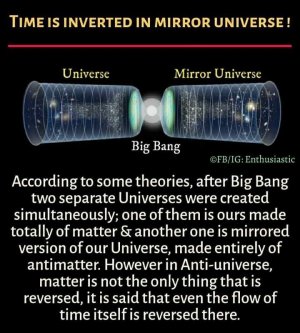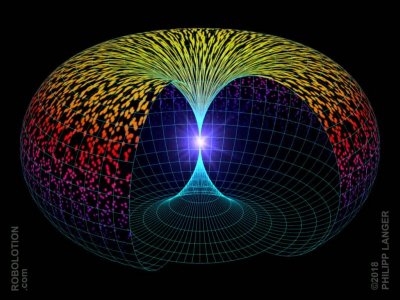David777
Well-known Member
- Location
- Silicon Valley
Concerning the infinite past of possible matter, energy, fields, gravity, and any other stuff within infinite 3 dimensional space, was at least something always there at least in some places in some form, or was there always nothing that sometime for unknown reasons began from nothing or was "God" created?
Infinite past meaning infinitely even before our probable Big Bang universe.
Note nothing meaning no fields including Higgs field or quantum foam or anything of even tiniest dimensions.
3-dimensional space infinitely beyond our known "universe".
Without invoking magic aka actions without forces or other dimensions.
related...
Can stuff exist because it was always there thus not needing to be created?
If there was always nothing, wouldn't the potential for 3-dimensional space still exist?
If only God existed eternally past, then how could it be said there was nothing?
Can past time be infinite and if not why would it be finite?
If it was not infinite how could it then have been started?
Is the flow of time independent of stuff and if not then why might it depend on stuff?
If there was always nothing, wouldn't the potential for time still exist?
David has no answers to the above, nor does human science, and these questions cripple even our most intelligent minds.
Infinite past meaning infinitely even before our probable Big Bang universe.
Note nothing meaning no fields including Higgs field or quantum foam or anything of even tiniest dimensions.
3-dimensional space infinitely beyond our known "universe".
Without invoking magic aka actions without forces or other dimensions.
related...
Can stuff exist because it was always there thus not needing to be created?
If there was always nothing, wouldn't the potential for 3-dimensional space still exist?
If only God existed eternally past, then how could it be said there was nothing?
Can past time be infinite and if not why would it be finite?
If it was not infinite how could it then have been started?
Is the flow of time independent of stuff and if not then why might it depend on stuff?
If there was always nothing, wouldn't the potential for time still exist?
David has no answers to the above, nor does human science, and these questions cripple even our most intelligent minds.
Last edited:



